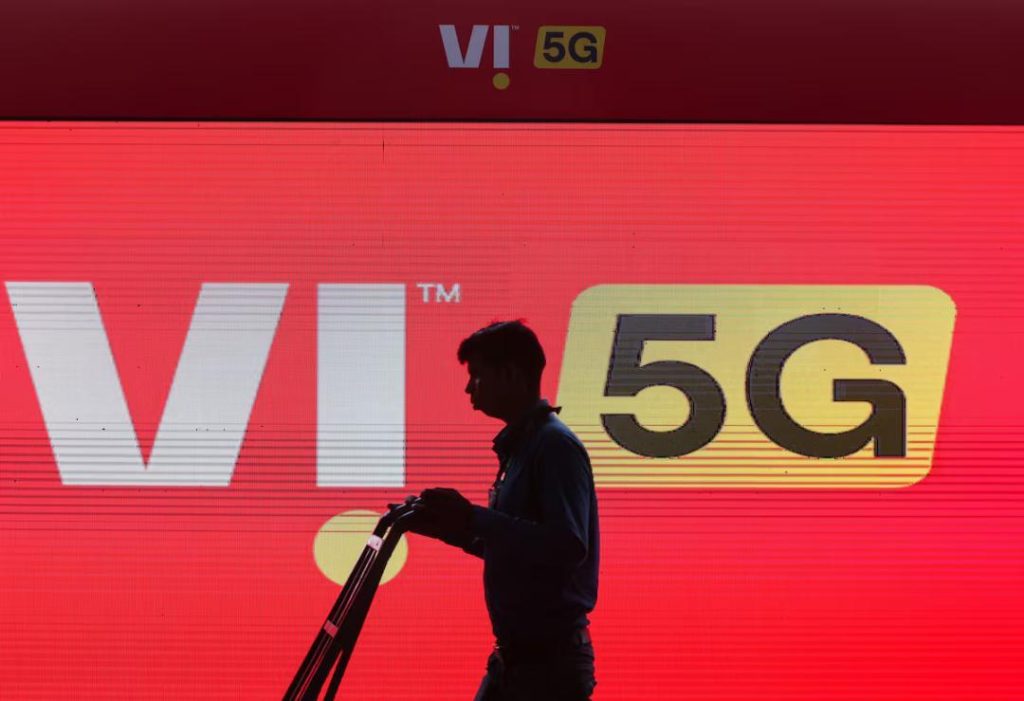
Govt’s Vi stake to rise from 22.60% to 49%
In a recent development, Vodafone Idea (Vi) has announced that the government will convert its outstanding spectrum auction dues worth ₹36,950 crore into equity. This move is expected to significantly increase the government’s stake in the company, from 22.60% to 48.99%. The news was confirmed by Vi in a regulatory filing, which stated that the company has been directed to issue 3,695 crore equity shares of the face value of ₹10 each at an issue price of ₹10 each.
This development comes as a major shock to the Indian telecom industry, which has been grappling with intense competition and financial struggles. The conversion of the outstanding dues into equity is seen as a way for the government to increase its stake in Vi, which is one of the largest telecom operators in the country. The move is likely to have significant implications for the company’s future operations and its relationship with the government.
So, what led to this decision, and what are the implications for Vi and the telecom industry as a whole? Let’s take a closer look.
Why is the government converting its outstanding dues into equity?
The government’s decision to convert its outstanding dues into equity is likely motivated by a desire to increase its stake in Vi and gain more control over the company’s operations. With a significant increase in its stake, the government will have more influence over Vi’s decision-making processes and will be better positioned to shape the company’s future direction.
The conversion of the outstanding dues into equity is also seen as a way for the government to support Vi, which has been struggling to pay its dues and stay afloat in a highly competitive market. The telecom sector has been facing intense competition since the entry of Reliance Jio, which has led to a significant decline in revenue and profitability for many operators. Vi, in particular, has been struggling to pay its dues, and the government’s decision to convert the outstanding amount into equity may be seen as a way to provide financial support to the company.
What are the implications for Vi?
The increase in the government’s stake in Vi is likely to have significant implications for the company’s operations and future direction. With a larger stake, the government will have more influence over Vi’s decision-making processes and will be better positioned to shape the company’s future direction.
The increased government stake may also lead to a loss of autonomy for the company, as the government will have more control over its operations and decision-making processes. This could lead to a more cautious approach to investments and risk-taking, as the government may be more risk-averse and focused on ensuring a quick return on its investment.
The increased government stake may also have implications for Vi’s ability to attract investors and raise capital in the future. With a larger government stake, the company may find it more difficult to attract private investors and raise capital, which could limit its ability to invest in new technologies and expand its operations.
What are the implications for the telecom industry?
The increase in the government’s stake in Vi is likely to have significant implications for the telecom industry as a whole. With a larger stake in the country’s largest telecom operator, the government will have more influence over the industry’s direction and will be better positioned to shape the future of the sector.
The increased government stake may also lead to a more cautious approach to investments in the telecom sector, as the government may be more risk-averse and focused on ensuring a quick return on its investment. This could lead to a decline in investment in the sector, which could have long-term implications for the country’s economic growth and development.
The increased government stake may also lead to a reduction in competition in the sector, as the government may be more likely to favor Vi over other operators and provide it with preferential treatment. This could lead to a decline in innovation and investment in the sector, as smaller operators may struggle to compete with Vi’s increased resources and government backing.
Conclusion
In conclusion, the government’s decision to convert its outstanding dues into equity is likely to have significant implications for Vi and the telecom industry as a whole. With a larger stake in the company, the government will have more influence over its operations and decision-making processes, and will be better positioned to shape the future of the sector.
However, the increased government stake may also lead to a loss of autonomy for Vi, a decline in investment in the sector, and a reduction in competition. These implications will need to be carefully considered as the government and Vi move forward with this new development.
Source




